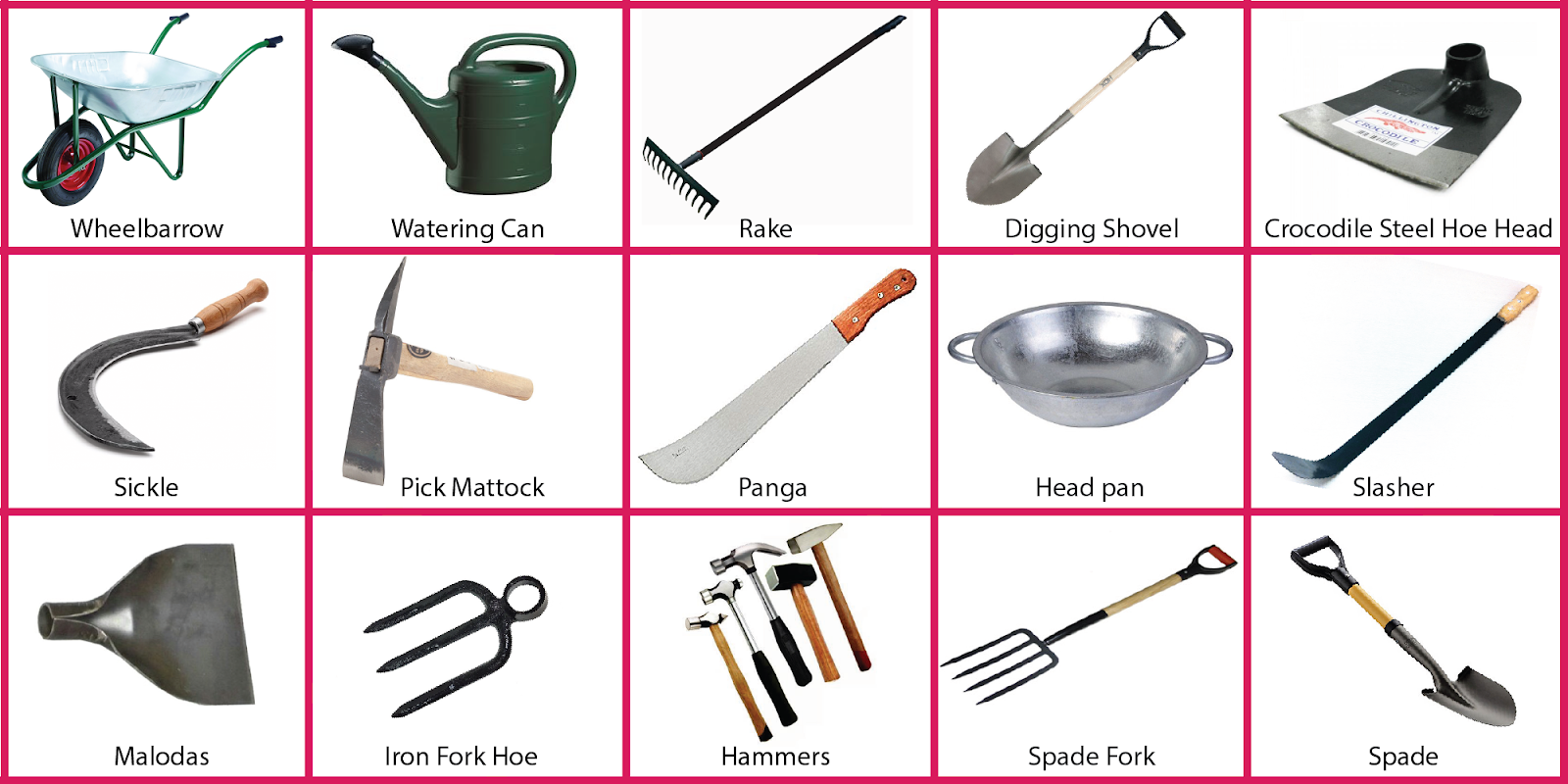Farming is one of the oldest professions known to mankind, and it has evolved significantly over the years. Farmers are now equipped with a wide array of tools designed to enhance productivity, efficiency, and sustainability in agriculture. Understanding the various tools that farmers use is essential not only for those in the industry but also for consumers who want to appreciate the hard work that goes into producing food. In this article, we will delve into the different types of farming tools, their functions, and their importance in modern agriculture.
Each tool serves a specific purpose, whether it's planting seeds, managing crops, or harvesting produce. The right tools can make a significant difference in yield and quality, thereby impacting the livelihood of farmers and the food supply chain as a whole. From traditional hand tools to modern machinery, the array of equipment available can be overwhelming. However, knowing the names and functions of these tools can empower both farmers and enthusiasts alike.
In addition to discussing the farmer use tools name, we will address common questions regarding the selection and maintenance of these tools. Whether you are a budding farmer or simply curious about agricultural practices, understanding these tools can provide valuable insights into the world of farming. So, let's explore the essential tools that every farmer should be familiar with!
What Are the Basic Hand Tools Used by Farmers?
Hand tools are the backbone of traditional farming, and many farmers still rely on them for various tasks. Some of the most common hand tools include:
- Shovel: Used for digging, lifting, and moving bulk materials.
- Hoe: Essential for breaking up soil and removing weeds.
- Rake: Used for leveling soil and collecting debris like leaves and hay.
- Pruning Shears: Ideal for trimming and shaping plants.
What Are the Most Important Power Tools in Farming?
Power tools have revolutionized farming, making it possible to cover larger areas in a shorter amount of time. Here are some power tools that every farmer should consider:
- Tractor: A multipurpose machine that assists with plowing, tilling, and planting.
- Combine Harvester: Used for harvesting a variety of grain crops.
- Tiller: Helps in mixing soil and preparing it for planting.
- Sprayer: Essential for applying fertilizers and pesticides efficiently.
How Do Farmers Maintain Their Tools?
Proper maintenance of farming tools is crucial for longevity and efficiency. Here are some tips for maintaining farming tools:
- Cleaning: Always clean tools after use to prevent rust and damage.
- Sharpening: Regularly sharpen blades to ensure efficient cutting.
- Storage: Store tools in a dry place to protect them from the elements.
- Inspection: Frequently check tools for wear and tear to ensure safety and functionality.
What Innovations Are Changing the Tools Farmers Use?
Technology continues to shape the agricultural landscape, introducing new tools that enhance productivity. Some notable innovations include:
- Drones: Used for crop monitoring and aerial imaging.
- GPS Technology: Helps in precision farming by allowing farmers to map fields and optimize planting.
- Automated Irrigation Systems: Ensures crops receive the right amount of water at the right time.
How Do Farmers Choose the Right Tools for Their Needs?
Selecting the appropriate tools depends on various factors including:
- Type of Crop: Different crops may require specific tools for planting and harvesting.
- Farm Size: Larger farms may benefit from more advanced machinery.
- Budget: Farmers must consider their financial capacity when investing in tools.
What Are Some Traditional Tools Still in Use?
Despite modern advancements, traditional tools still hold a place in farming. Some of these tools include:
- Sickle: A hand-held agricultural tool for harvesting crops.
- Plow: Used for tilling the soil and preparing it for planting.
- Seed Drill: An ancient tool that helps in planting seeds at the right depth and spacing.
What Role Do Tools Play in Sustainable Farming Practices?
Tools play a critical role in promoting sustainable farming practices. Here are some ways they contribute:
- Efficiency: Better tools reduce the amount of time and resources needed for farming.
- Soil Health: Implements like cover crop rollers help in maintaining soil integrity.
- Reduced Chemical Use: Precision tools can help minimize the overuse of fertilizers and pesticides.
Conclusion: Why Knowing Farmer Use Tools Name is Important?
Understanding the various tools farmers use is essential for appreciating the complexities of agriculture. From hand tools to high-tech machinery, each tool plays a vital role in ensuring that we have a steady supply of food. As we continue to innovate and improve farming practices, the importance of knowing farmer use tools name cannot be overstated. Whether you’re a farmer yourself or simply an interested consumer, knowledge of these tools can enhance your understanding of the agricultural world.



